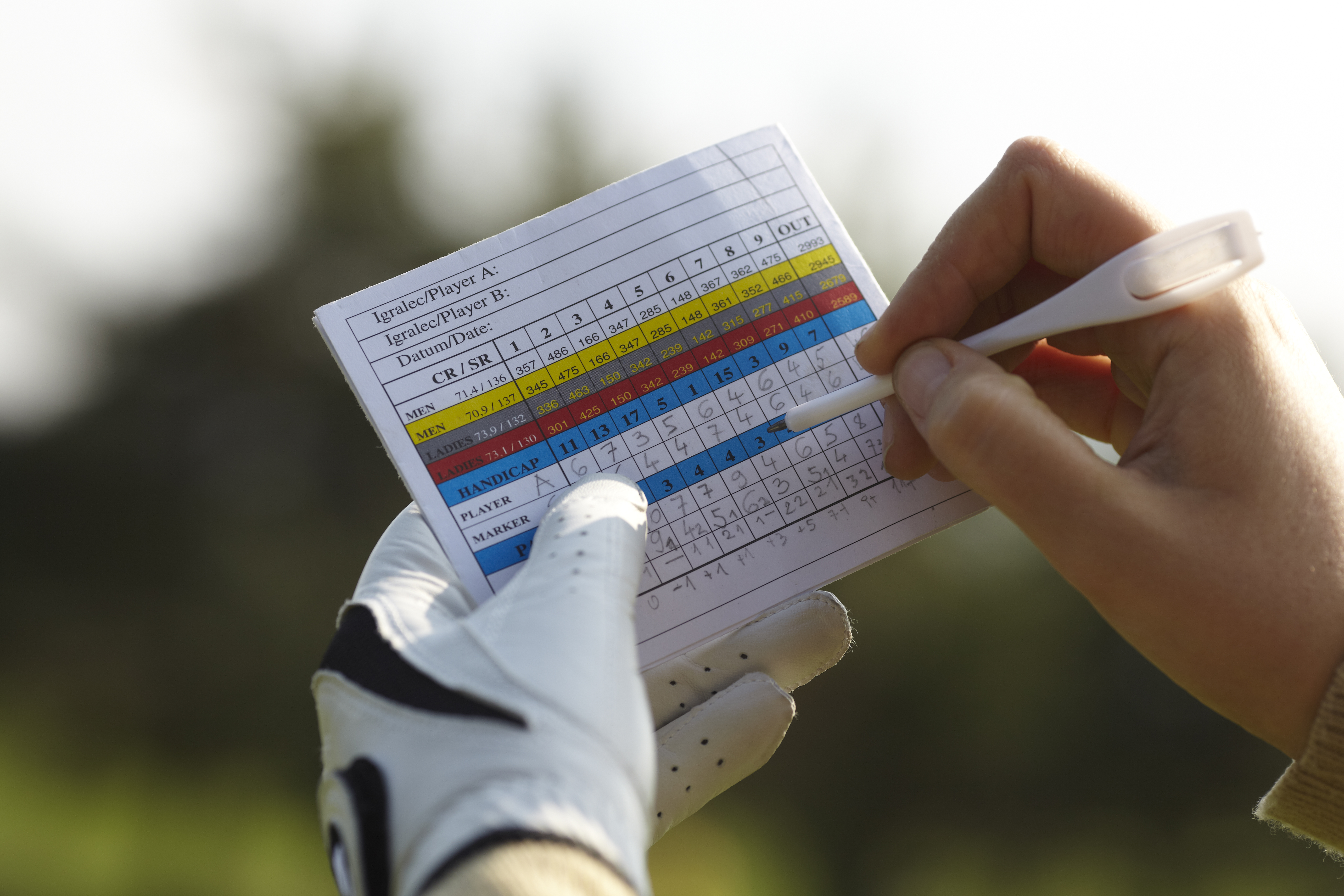
Golf has many different rules and a long list of terms, of which stroke index is just one. If you’re new to the game, this is an important one to familiarise yourself with, as it’s key to working out scoring in various competitions. You don’t want to be one of those saying, ‘How many points did I score there?’ on every hole.
The Rules of Golf states that “The Committee is responsible for publishing on the scorecard or somewhere else that is visible (for example, near the 1st tee) the order of holes at which handicap strokes are to be given or received.” This Rule - 5I (4) - requires that a club decides upon and allocates “Stroke Index.”
HOW DOES THE STROKE INDEX WORK IN GOLF?
Each of the 18 holes receives a unique stroke index number (1-18). These are listed for each hole on the scorecard or somewhere visible. Sometimes it’s shortened to SI or appears as hcp. These strokes indexes are designed to allow for handicap matches.
A strokeplay match between players of unequal handicaps is simple to determine – deduct each player’s Playing Handicap from the gross score and you get the net score – and lowest net score wins.
What about matchplay? Well, let’s say Sarah has to give Linda four shots during the round. Linda will receive these shots on stroke index holes 1-4 (not holes 1-4). Simple.
HOW DOES THE STROKE INDEX WORK WITH STABLEFORD?
Stroke index is also used in other competitions, such as Stableford – which, for a lot of clubs, is the most common competition format on the club calendar.
Here, points are earned on each hole in relation to each golfer’s net par for the hole. Net par is calculated using stroke index.
Let’s say Steve gets 10 shots – this is one extra shot on holes with a stroke index 1-10 inclusive. Brian gets 19 shots, which means two extra shots on the stroke index 1 hole and one extra shot on all the others. Is Brian a bandit? Let’s not go down that rabbit hole in this piece.
WHAT DOES STROKE INDEX MEAN ON A GOLF SCORECARD?
It’s a bit of a misconception that it’s a ranking of holes in terms of difficulty – so 1 is the hardest and 18 the easiest. It’s not quite that simple.
Here’s why. Stroke index was designed for matchplay. It’s rare that the 1st has a low stroke index, in case the match is tied after 18 holes and goes to sudden death. The same applies for the 10th hole at clubs where matches can sometimes start.

The reason the 18th is rarely of low index is because golfers object to giving a shot in what may be a crucial hole. It’s also because a lot of matches do not get to go down 18 and so the person receiving shots may not get to use the full allocation. For the same reasons, you’ll rarely see the 9th with a low stroke index.
In Stableford, par and bogey competitions, the need to have a uniform and balanced distribution of strokes is less compelling. In such competitions, it's more appropriate for stroke index to be aligned to the ranking of holes in terms of playing difficulty, irrespective of hole number.
Allocation must then take both matchplay and strokeplay into account.
HOW DOES STROKE INDEX WORK FOR NINE HOLES?
If playing a nine-hole competition on an 18-hole course, the committee has two options. Either strokes should be taken/given in ascending order from the published stroke index for 18 holes. For example, if a player would receive 10 shots for 18 holes, they receive shots on holes ranked 1-10 on that nine.
Or, a committee can amend the stroke index allocation on that nine from 1 to 9, relative to the ascending order of the published stroke index allocation for 18 holes.
HOW IS STROKE INDEX DECIDED?

Stroke index allocation is covered in Appendix E of the Rules of Golf. It suggests that the allocation of stroke index is, overall based on difficulty relative to par but with certain caveats.
It is recommended that the course should be split into six triads (groups of three) with each hole ranked on its playing difficulty relative to par. This can be determined from data used for the course rating Procedure.
The Rules recommend the following methodology for stroke index allocation within the six-triad structure, in order to work for both matchplay and strokeplay:
* Apply odd stroke index allocations over the front nine and even stroke index allocations over the back nine. If, however, the back nine is significantly more difficult than the front nine, as determined by the Course Rating, the even stroke index allocations can be switched to the front nine and the odd stroke index allocations to the back nine.
* Spread stroke index allocations evenly over the 18 holes so that players receiving strokes will have the opportunity to use a high proportion of these strokes before a match result has been decided.
* Apply the lowest stroke index hole (1 or 2) on each nine in the middle triad. If no hole within the middle triad is ranked within the lowest six holes relative to par, then it can be moved into an adjacent hole at the end of the first triad or the beginning of the third triad on each nine.
* Apply the second lowest stroke index hole (3 or 4) on each nine in either the first or third triad, unless the lowest stroke index hole has been allocated in that same triad.
* If possible, avoid low stroke indexes (six or less) on consecutive holes.
* When a player receives more than 18 strokes, the same allocation order is used with stroke index 1 repeating as stroke index 19, 37 and 55, with all additional strokes going up sequentially.
WHO DECIDES ON THE STROKE INDEX OF A GOLF COURSE?
The committee decides upon the stroke index allocation of a golf course. They should do so based on the recommendations outlined above.







